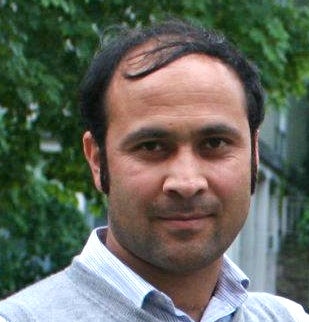Location: Afghanistan
Level of Training: (Level I – 2012
Scholarship(s): The 2012 Bruce Tancrell Memorial Schloarship
About:
Since my nonviolence training, I have conducted several Nonviolence and Civic Mobilization trainings in the Kunar Province of Afghanistan funded by the US Institute for Peace. The first had 30 participants included 21 men and 9 women, comprised of tribal chiefs, religious scholars, university professors, university students and journalists. Participants studied and discussed historical and contemporary nonviolent campaigns, learned techniques of planning, organizing and conducting nonviolent campaigns.
2019 update:
Archiwal is the leader of OSCAR (Organization for Social Cultural Awareness and Rehabilitation), a Kabul based organization. Mr. Archewal has an MA degree in Journalism and Mass Communication from the University of Peshawar and another MA in International Affairs from the New School University in New York, where he studied as a Fulbright scholar. Archiwal is working on his doctoral studies at Rutgers University. His main areas of interest are security and conflict, CVE, Media Election and governance. In addition, Archiwal has also worked extensively on nonviolence and has written a book, Cultural Impacts of Khudai Khidmatgar. on the topic in Pashto and has translated three other books from English into Pashto.
He is teaching and researching nonviolence in Afghanistan. “We need research-based academic work on nonviolence and its usage in Afghanistan. We have already started the valuable work of not only teaching nonviolence but also doing research on it. Long way to go! I was privileged to do a presentation on the prospectus of nonviolence in Afghanistan – Helmand as a Case Study at South Asian University( SAU) in Delhi. Miraj Udin, Mohammad Iqbal Ahmadzai, and Zahid Khan Akhtar were critical in making the presentation happen.” said Archiwal after delivering a presentation on nonviolence in Afghanistan.
Ahmadullah visited the Center in November, 2019 and spoke to students in two courses: PS500 grad students in Global Peace and PSY425 Peace Psychology. Summary of presentation.

